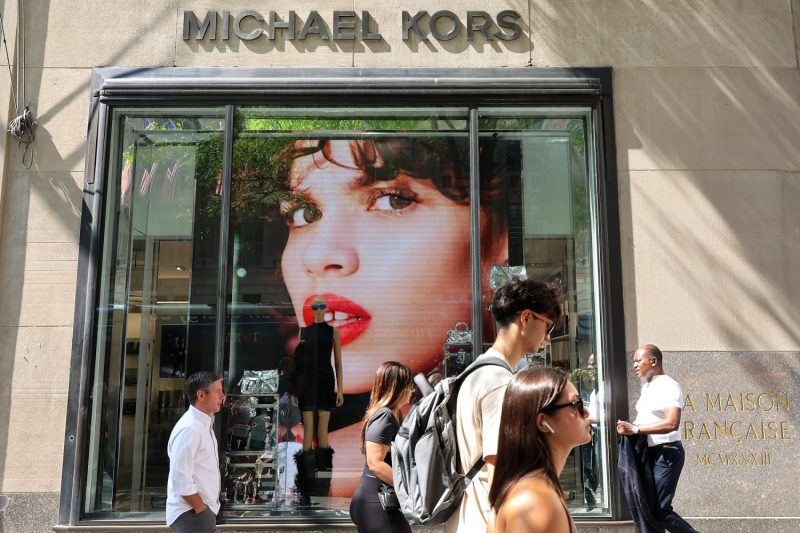
Unlocking the Bag: Michael Kors’ TikTok and Taylor Swift Handbag Sales Challenge
In a recent federal trial, renowned fashion brand Michael Kors highlighted the challenges it faces in selling handbags in the age of social media influencers and pop culture icons like Taylor Swift. The court case shed light on the evolving landscape of marketing and retail in the digital era, where traditional strategies are no longer as effective as they once were.
One of the key points raised by Michael Kors was the difficulty in standing out in a crowded market saturated with content from influencers and celebrities. The brand emphasized the impact of platforms like TikTok, where trends can go viral overnight and shape consumer preferences in a matter of hours. In this fast-paced environment, it becomes increasingly challenging for established brands to maintain relevance and capture consumers’ attention.
Additionally, the rise of celebrity endorsements and collaborations has further complicated the competitive dynamics of the fashion industry. Michael Kors acknowledged the power of partnering with popular figures like Taylor Swift to reach a broader audience and create buzz around its products. However, the brand also expressed concerns about the potential pitfalls of such collaborations, including the need to carefully manage brand image and authenticity in a landscape dominated by influencer culture.
Moreover, the trial highlighted the importance of online retail channels in driving sales and reaching tech-savvy consumers. Michael Kors pointed out the need to adapt its marketing strategies to better engage with digital-savvy shoppers who prefer the convenience of online shopping and seek personalized experiences. By leveraging data analytics and social media insights, the brand aims to tailor its marketing efforts to the preferences and behaviors of its target audience.
Another significant aspect discussed in the trial was the impact of counterfeit products and knockoffs on Michael Kors’ brand reputation and sales. The brand underscored the challenges of combating counterfeiters in an age where e-commerce platforms make it easier for unauthorized sellers to distribute fake merchandise. By emphasizing its commitment to quality and authenticity, Michael Kors seeks to differentiate itself from counterfeit competitors and preserve its brand integrity.
Overall, the federal trial involving Michael Kors sheds light on the complexities and opportunities facing fashion brands in the digital age. As the industry continues to evolve, brands must navigate the ever-changing landscape of social media, influencer marketing, online retail, and brand protection to stay competitive and relevant in the eyes of consumers. By embracing innovation, collaboration, and digital transformation, brands like Michael Kors can adapt to the new realities of the market and secure their position as leaders in the fashion industry.
